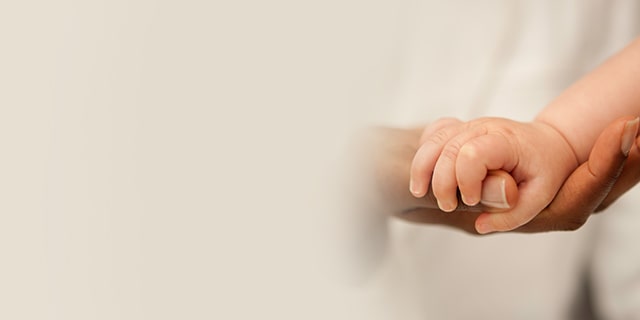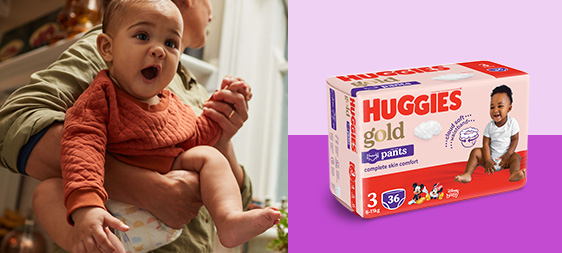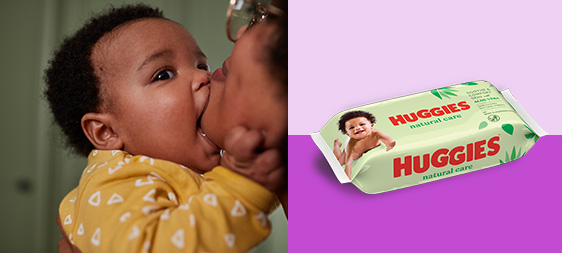Another name for whooping cough is pertussis, which is caused by the Bodetella Pertussis bacterium and is highly contagious. A whooping cough is an infection that affects the lungs and airways. In South Africa the DTaP vaccine is used to protect us against it.
To reduce the chances of you and your little ones getting it, make sure you all are fully immunised (this means a booster shot for you too mom).
New outbreaks are occurring on a fairly regular basis and 16 million cases of pertussis occur each year.
Whooping cough can be particularly dangerous for babies and young children. Sadly, around 195 000 of babies in developing countries who become infected with whooping cough will die each year.
What is whooping cough?
Whooping cough is a bacterial illness that initially affects the nose and throat. The infection then goes on to cause more mucous to develop, which creates the cough that may have the very identifiable `whoop'.
A swab test from the back of the throat may confirm a case of whooping cough. An early diagnosis can mean quick treatment using antibiotics and thus less chance of spreading the disease. Symptoms may also be reduced by early treatment.
If the disease is left untreated it is not uncommon for vomiting to occur after a bout of coughing as a child chokes on the mucous. Some babies may not cough, but simply stop breathing for a period of time (called apnoea). It is the inability to breathe that causes the most problems for babies and is the leading cause of death in some infants.
What are the symptoms of whooping cough?
A newly infected person will usually start to display symptoms around 7-10 days after coming into contact with the disease.
Whooping cough starts with symptoms similar to that of the common cold:
A runny nose
Red eyes that are sore and watery
A low-grade fever
Sneezing and nasal congestion
A dry cough. The cough is usually followed by a `whoop' sound as air is sucked back into the lungs - giving the disease its distinctive name
Extreme coughing can cause vomiting
How is Whooping Cough Spread?
It is spread from person-to-person. Coughing and sneezing releases tiny droplets into the air which are then breathed in by other people.
Simply put, if your unimmunised baby is near someone who coughs or sneezes while they are in the infectious stage of the disease, it's extremely likely that they will contract the disease. So, stay well away from anyone you know that may be carrying the disease.
Many babies are infected with whooping cough from family members who are unaware that they have the disease. In order to protect babies it is important that everyone around them are vaccinated.
A person can spread the disease from 6 days after they were first infected until 2-3 weeks after the coughing started.
Baby Vaccination for Whooping Cough
According to the Expanded Programme of Immunisation (EPI), it is recommended that all babies receive their vaccines against whooping cough at weeks 6, 10 and 14 and then receive a booster shot at 18 months. Your baby must receive at least 3 vaccines to be immunised.
As with most vaccines, the whooping cough vaccine can not guarantee that your baby will not get whooping cough. It is always better for you, and your baby, to avoid contact with someone suspected of carrying the disease.
Who else should be immunised?
It is recommended that all persons who come into contact with young babies and children have a booster immunisation to help prevent the spread of the disease. In addition to healthcare professionals, you may like to consider having the booster shot for whooping cough yourself.
Immunisation is recommended for:
Women and their partners who are planning to get pregnant
Mothers who have not had a booster should have an immunisation shortly after the birth of their baby
Siblings older than 14 years of age who received the vaccine as part of the childhood schedule
Grandparents and other family members
Childcare workers, baby sitters and nannies
Healthcare workers
Any person who has not already been immunised
Why the sudden increase in infection rates?
Cases of whooping cough have been increasing over the past several years and outbreaks of whooping cough can occur. This may be due to a number of reasons:
Doctors and nurses are more aware of whooping cough and recognise it more often
We have improved the ways in which we test for the disease
Protection from vaccines decreases over time
More of the bacteria may be circulating
Small mutations in the bacteria have allowed it to survive in spite of vaccination
Whooping Cough and Pregnancy
The Centres for Disease Control and Prevention (CDC) recommends that all pregnant women should receive the whooping cough (Pertussis) vaccine between 27 and 36 weeks of pregnancy (of gestation). This timing will maximise the mother's antibody response and enable her immunity to be passed on to her unborn baby.
If you don't receive the vaccine prior to or during your pregnancy, it is recommended that you receive the vaccine as soon as possible after your baby is born.



























